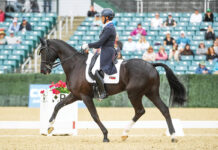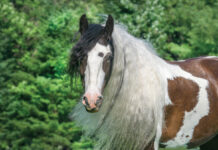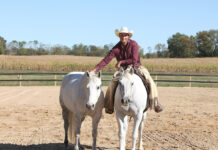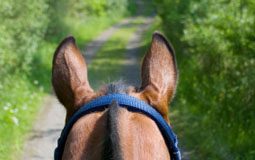When it comes to equine history, many believe you can’t go further back than the Arabian horse.
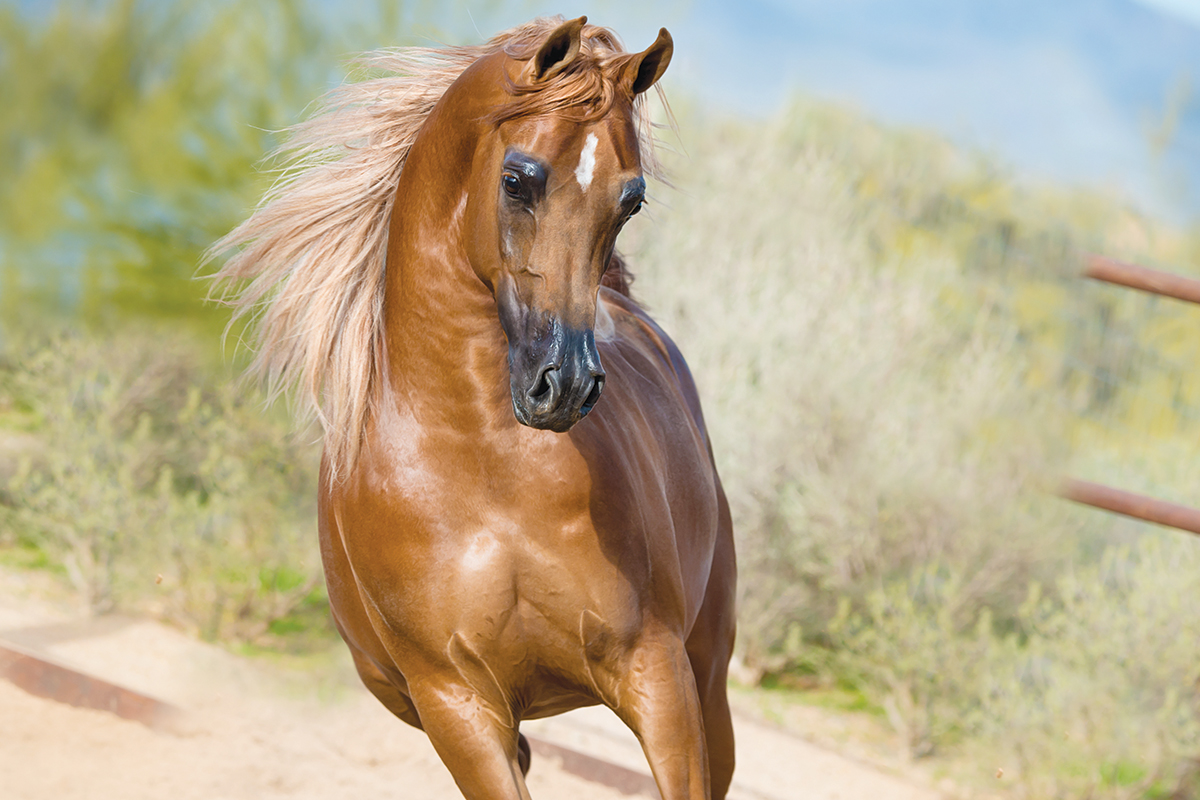
Life in the harsh desert meant only the strongest of these horses survived. The results were the development of a breed with a large lung capacity and great endurance that can travel for miles without stopping, with the heart and spirit to match.
In more recent times, Arabian horses have contributed their ancient genes to help create and refine other breeds. The Thoroughbred, Andalusian, Welsh Pony and American Quarter Horse are just a few of the breeds that owe their influence to the Arabian horse.
An Arabian Horse Ambassador
What does it mean to live with a horse whose heritage is considered the oldest and purest of all of the breeds? Husband-and-wife team Lee Pearce and Naomi Preston of Baker City, Ore., know the answer.
They have shared the past 17 years with a purebred Arabian gelding named Fire Mt Malabar, who has proven to possess the endurance famous in his breed. Named the American Endurance Ride Conference (AERC) 2019 Hall of Fame Equine, “Mal” is 22 years old and still competing in endurance.
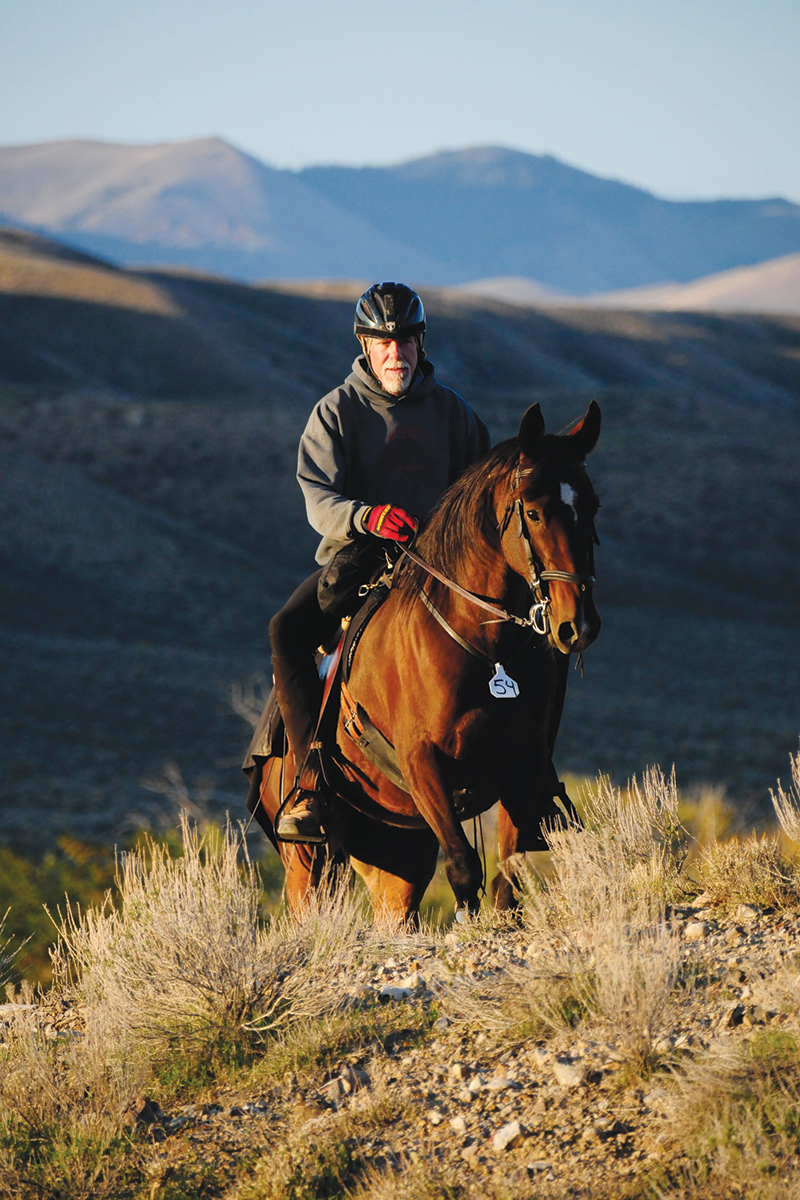
Mal started life as a racehorse, running more than 50 races by the time he was retired at age 5.
“Naomi saw a classified ad for him in the AERC Endurance News,” says Pearce. “She said, ‘If you want a champion, take a look at this horse Malabar.’ She knew his owner and his bloodlines, and that his sire, Sierra Fadwah+/, was the 1992 AERC Hall of Fame equine. Sierra Fadwah was one of the top sires in the sport, producing many outstanding endurance horses.”
Arabian Endurance
After bringing him home, Pearce and Preston spent two years conditioning Mal for his first endurance ride in 2006. Although Mal had no prior endurance training, the Arabian horse breed made him a natural for the sport.
“He had total ‘race brain’ for the first 25 miles and went much faster than I had planned,” says Pearce. “We spent the remaining 25 miles trying to preserve as much energy as we could to keep him going.”
Three years into his endurance career, Mal was still challenging Pearce with his racing mindset, but won his first ride and received two best condition (BC) awards, the most coveted title next to an outright win.
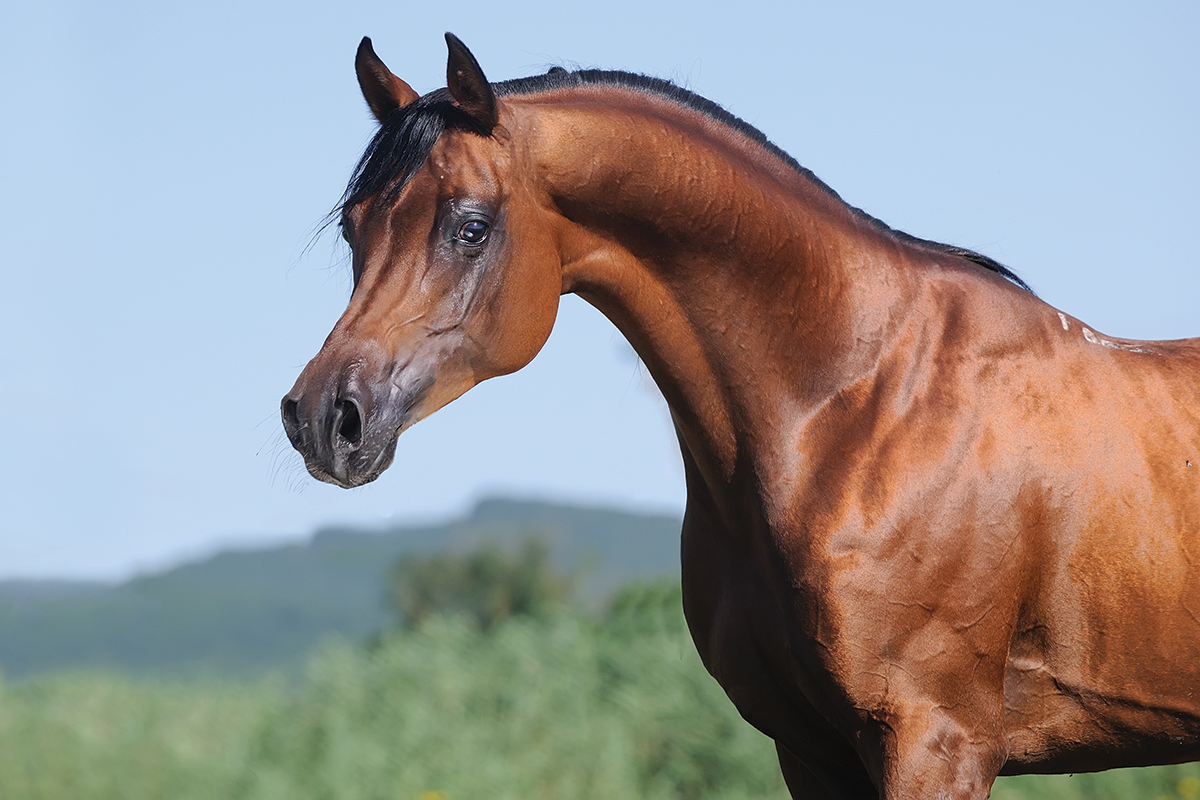
“That’s when I knew he was something special,” says Pearce, who notes that over the years, the horse kept getting stronger and stronger while carrying his heavyweight rider, and seemed to love his job.
“He started to excel at longer rides, including 75, 80 and 100 miles, and won the Heavyweight Division [riders 211 pounds and over] in the 2013 National Championship 100-mile ride,” says Pearce.
Finding His Stride
Throughout the years, Mal started chalking up lots of BC awards and won the National Best Condition Championship in 2011 and second place in 2015. The athletic ability and quick recovery that the Arabian horse is known for helped Mal achieve longterm success in the sport.
“To date, Mal has won 48 best condition awards, displaying not only his strength, but his ability to shine after the ride is completed,” says Pearce. The horse currently has 8,410 miles on his record.
Mal is now being ridden by Preston, who is a lightweight rider (161-185 pound division), and is still competing.
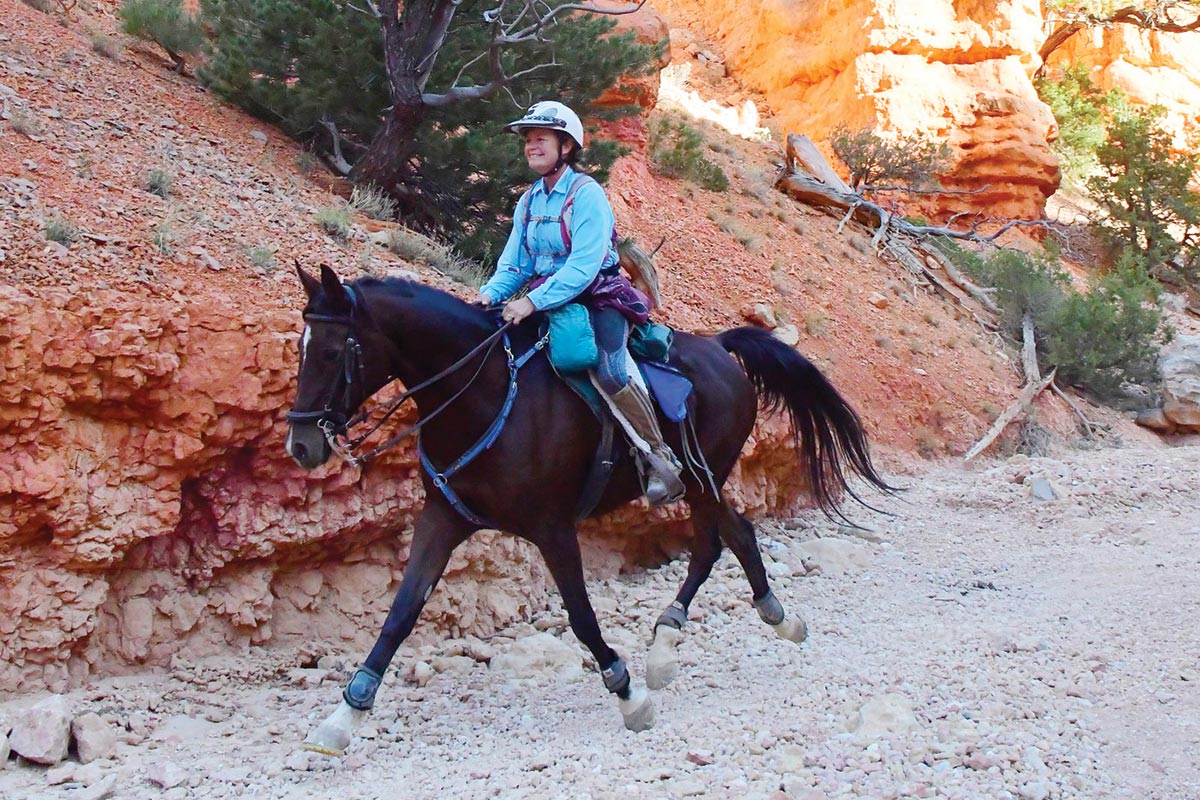
“Last year at age 21, he had a 100-percent completion rate,” says Pearce. “He maintains his incredible soundness, love for his job, and excellent condition. And for the last three years, he’s been carrying a lightweight rider, which has given him continued stamina in his veteran years.”
Over the last few years, Mal has also excelled at multi-day Pioneer rides, ranging from 155-mile three-day rides to 260-mile five-day rides.
“His mileage capabilities have not diminished at all,” says Pearce. “In fact, our hope is that he can achieve AERC’s Perfect Ten award by reaching 10,000 miles.”
Fast Facts about the Arabian Horse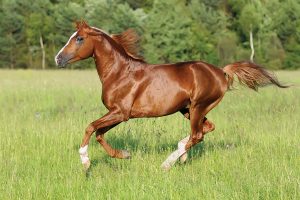 Height: 14.1 to 15.2 hands Color: Bay, chestnut, gray and black. Overall Appearance: Small head, straight or preferably slightly concave profile; small muzzle, large nostrils; large eyes set well apart; small ears with tips curved slightly inward. Long, arched neck and high withers. A short back and horizontal croup with high tail carriage. Find more details about the breed by visiting the websites of the Arabian Horse Association and the World Arabian Horse Organization. |
This article about an Arabian horse appeared in the May 2021 issue of Horse Illustrated magazine. Click here to subscribe!

